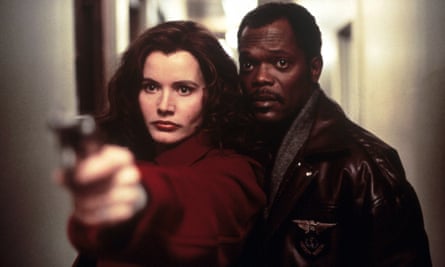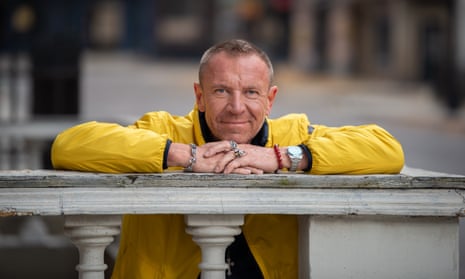When Renny Harlin launched a new production company in Beijing in 2018, he believed he had found his new permanent home. After nearly three decades of working at various levels in mainstream American film-making – hopping with aplomb between such action-driven projects as Die Hard 2, Cliffhanger and Deep Blue Sea – the Finnish-born director had accepted that his days of steering top-of-the-line studio blockbusters were probably behind him.
China, on the other hand, presented fresh challenges, as he prepared to bring his Hollywood-honed genre-movie nous to the world’s fastest-growing film market. His own Chinese-language directorial outings, including the Jackie Chan vehicle Skiptrace and the martial-arts epic Legend of the Ancient Sword, suggested he was slickly acclimatising to his new surroundings. “Chinese producers asked me to stay and make more movies there and teach them how Hollywood movies are made,” Harlin says. “And Hollywood people asked me to be there and kind of be their guide dog in China. I became part of the bridge between the two, in a certain way.”
And then everything changed. In January 2020, Harlin flew to Finland for a homeland visit with a single suitcase, right before the burgeoning terror of Covid-19 sent China, and subsequently the world, into lockdown. “There was no return,” he says. “I waited a week, a month, a year. And then I came to realise that the Chinese film market is never going to be the same again. And because of the political climate, the Chinese-American relationship is not a very good one for the foreseeable future. Eighteen months ago, I thought China was going to be my life. And now I’m not returning. Probably never.”
What’s a restless, globe-trotting film-maker to do at such an impasse? Why, make more movies, of course – wherever and however possible. Prolific at the best of times, Harlin has been especially busy during the pandemic. While in Finland, he shot his first ever Finnish-language film, 35 years after leaving the country for Hollywood; he’s speaking to me from Bulgaria, where he’s just wrapped a PTSD-themed thriller titled The Refuge. And last year, under Covid conditions, he travelled to the United Arab Emirates to shoot The Misfits, a gaudy, frenetic heist romp starring Pierce Brosnan as the suave ringleader of a motley crew out to rob a prison in a fictional Arab nation.
Out in cinemas this week in the US before a swift transfer to streaming platforms, The Misfits is a film of cheap thrills and good cheer: if you can stomach its less-than-enlightened vision of the Middle East, it’s a jolly throwback to 90s-style action sizzle. Indeed, it’s the kind of film that, in that decade, Harlin might have directed for one of the major studios; now, notwithstanding its flashy construction, it’s a lower-profile affair, with financing pieced together from various international sources.
Harlin acknowledges the difference. “There’s been a huge change, and I think it’s really unfortunate for the art form of cinema,” he says with a sigh. “The cold reality is now, if you look at the studios, they make only these mega-expensive giant superhero comic book movies, and they maximise their bets by spending a lot, so the audience has so much to look at that the film is going to be successful.
“And then at the other end of the spectrum, they make these ultra-cheap horror films. And then there may be the odd romantic comedy here and there, but basically there’s nothing in between that. Maybe 20 years ago, they’d have happily made a movie like this. But now that doesn’t happen any more, because the movies have to be, first of all, based on existing IP.” He drawls out the two letters – industry shorthand for intellectual property – with audible weariness. “I don’t even remember hearing that expression a decade ago. Now it’s everything: whether it’s a comic book or a book or a TV series, the film is already marketed before they even touch the camera.” Is he saying he wouldn’t make a Marvel film if asked? “Oh, of course I would!” he shoots back. “I’d be pretentious if I said no way. But it’s known that in those movies, a lot of the sequences are digitally designed: it’s kind of an animated movie. And that takes away a lot of the fun that I have in movie-making.”
Harlin could hardly be a puritan sceptic of franchise-oriented cinema. His first hit was the fourth entry in the Nightmare on Elm Street series, after all, and after scoring another with the Die Hard sequel, he was attached to Alien 3 before creative differences with the producers eventually passed the job to David Fincher. But he does believe it was easier to impose a directorial stamp on such projects than it is now.

“Not to take anything away from directors who are doing the comic book movies, but it’s not a big secret that the comic book company controls things quite a bit on those franchises,” he says. “They have certain requirements of how the movies are made and the stories are told. I think it was very different when I was making sequels, starting with Nightmare, we changed Freddy Krueger’s character a lot: because it was four films in, and the audience was in on the joke now, I wanted him to become the hero, kind of the 007 of horror. And they went with that.”
On the back of that gamble, Harlin effectively became a rock star of Hollywood studio cinema, with a long blond mane and glamorous personal life to match: he dated Laura Dern (producing the indie, Rambling Rose, that netted her her first Oscar nomination) and married Geena Davis, all while churning out one expensive multiplex bauble after another. The hits were not constant; Die Hard 2’s box office success came only two weeks after The Adventures of Ford Fairlane crashed in cinemas. More notoriously, 1995’s Davis-headlined pirate adventure Cutthroat Island grossed $10m in the US off a $100m budget (earning itself Guinness-record bomb status), and was blamed for bankrupting Carolco Pictures.
A quarter-century on, Harlin stands by the film. “I think it’s a good movie,” he says, “and it’s hard not to feel that we were unlucky, particularly when you see how Pirates of the Caribbean did years later. It didn’t really have a chance with the distribution: it’s not that people hated it, people didn’t know it was out. But it’s what I wanted it to be: a swashbuckling movie for kids, and people who have a kid inside them. There are certainly some movies I’ve made where it didn’t come out very well. But that one I’m proud of.”
Can he name one of the films that didn’t work out? “Exorcist: The Beginning,” he says, his tone pained, referring to the grisly 2004 horror prequel that was retooled and reshot from a more eccentric cut by director Paul Schrader. “In a weak moment I decided to help out a friend, and I knew from the script that it wasn’t going to be great.” He sounds sanguine about his career misfires, though admits to finding box-office failure devastating in the moment. The underperformance of his second film with Davis, the terrific, slam-bang assassin thriller The Long Kiss Goodnight, still rankles: it’s the film of his he’s most eager for audiences to rediscover. “I think it was ahead of its time with its female action hero,” he says. “It’s just a very entertaining movie.”
Next, it’s back to Finland, where he’ll shoot a local crime comedy with producer Markus Selin – a longtime friend with whom he made his very first film, the calling-card actioner Born American, back in 1986. Harlin, it seems, is a free agent these days: does it feel that way, relative to his megabudget Hollywood era? “It’s true, yes: the more money is involved, the bigger the studio, the more pressure and surveillance there is.” He pauses. “I was joking the other day, as we were shooting in Sofia: it feels great to be making a movie without any parental guidance. That’s how it feels.”
The Misfits is out in US cinemas on 11 June and on demand on 15 June with a UK date to be announced

Comments (…)
Sign in or create your Guardian account to join the discussion